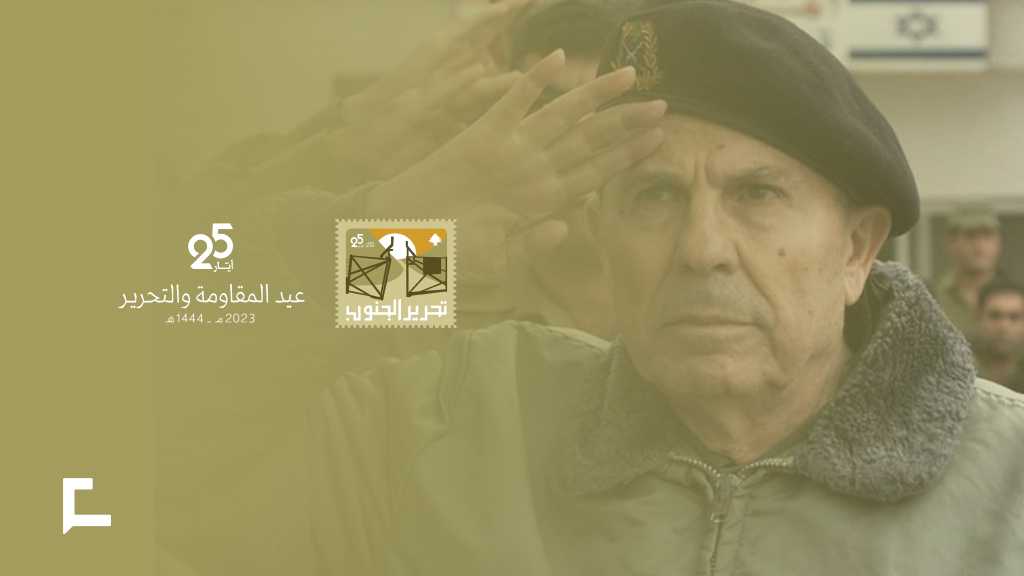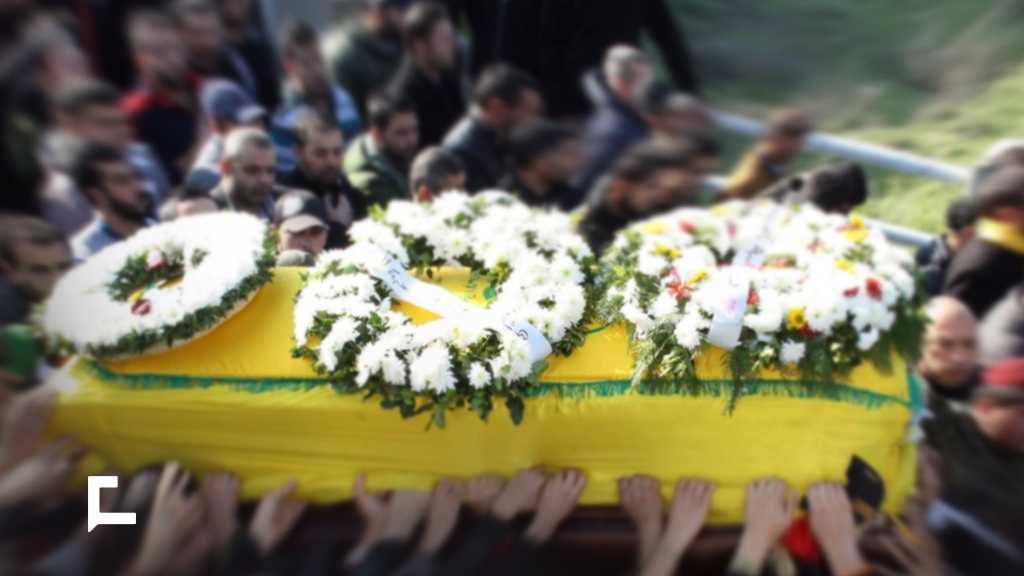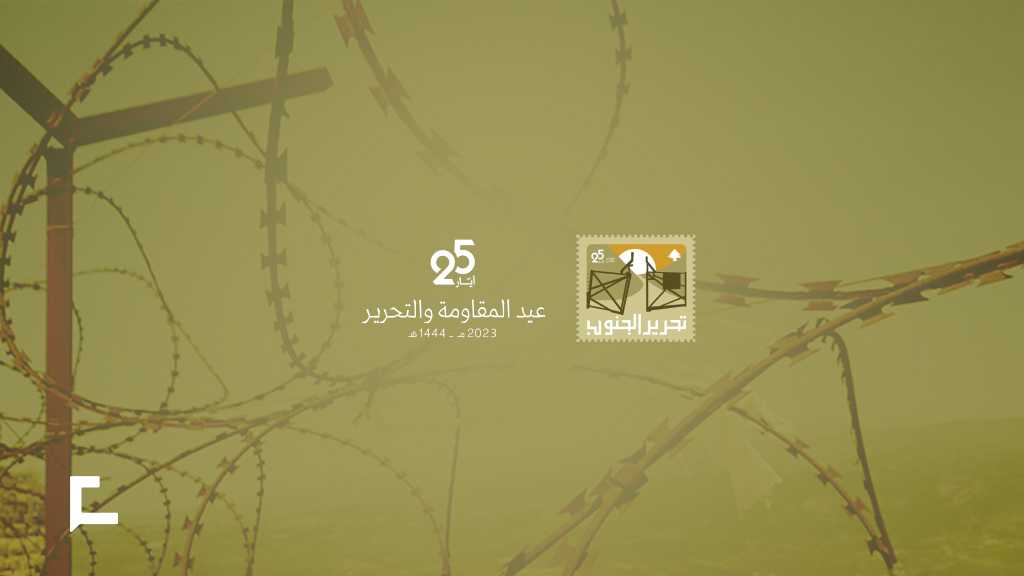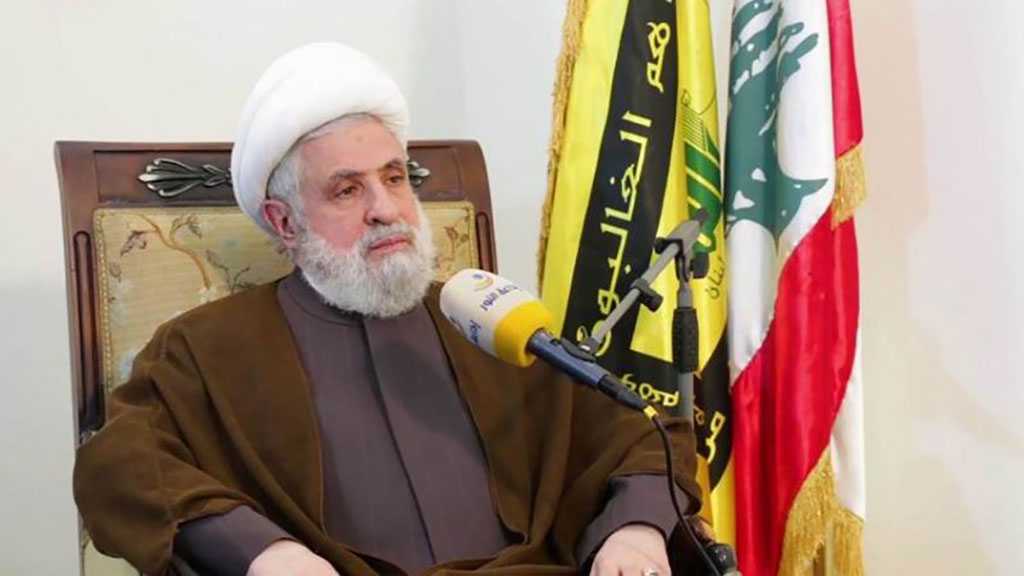
Liberation Day Celebrations Mark "Israels" 2000 Pullout

Source: Daily Star, 27-5-2008
BEIRUT: Lebanon celebrated Liberation Day Monday, a day after the official May 25 commemoration of the "Israeli" withdrawal from most of the South Lebanon. The event was moved back this year in order to make way for the Sunday election of President Michel Suleiman. "Israel", which first occupied parts of the South in 1978, launched a full-scale invasion in June 1982. Then-"Israeli" Prime Minister Menachem Begin launched what he called "Operation Peace for Galilee" with the declared aim of eliminating a Palestinian Liberation Organization (PLO) artillery threat to northern "Israel", but the border area had actually seen a period of relative calm for months. And the particular incident held up as a pretext for the invasion, the attempted assassination of an "Israeli" diplomat in England, was engineered by an avowed enemy of PLO leader Yasser Arafat.
Despite its initial commitment to a "limited" operation in the South, the "Israeli" military quickly advanced on Beirut, killing thousands of civilians and retaining a significant direct role in the Lebanese Civil War until the late 1980s, even after the size of its occupation zone was reduced to a swathe of the South.
Although "Israel" at one point or another maintained cooperative relations with several Lebanese factions during the Civil War, the main domestic pillar for its presence was its proxy: the South Lebanon Army (SLA). While most of the SLA's officer corps was made up of disenchanted Christian officers from the Lebanese Armed Forces led by Saad Haddad and then Antoine Lahd, many of the footsoldiers in the later years were Shiites and Druze, many of them co-opted into joining by threats against their families.
After the Civil War, Hizbullah stepped up operations against "Israeli" occupation forces, drawing several "reprisals," including particularly heavy onslaughts on Lebanon in 1993 and 1996, with the latter resulting in the Qana massacre of more than 100 civilians who had taken refuge at a UN compound.
Casualties resulted in domestic political pressure for "Israel" to simply pull out of Lebanon.
While running for the "Israeli" premiership in 1999, Ehud Barak promised to leave Lebanon, despite Syrian reticence regarding a unilateral end to the occupation and commitments made to support the SLA presence south of the Litani River and in the so-called "Jezzine pocket."
After taking office, Barak made good on his pledge, and the pullout - apart from small areas such as the Shibaa Farms and the Kfar Shuba Hills - was completed on May 25, 2000.
BEIRUT: Lebanon celebrated Liberation Day Monday, a day after the official May 25 commemoration of the "Israeli" withdrawal from most of the South Lebanon. The event was moved back this year in order to make way for the Sunday election of President Michel Suleiman. "Israel", which first occupied parts of the South in 1978, launched a full-scale invasion in June 1982. Then-"Israeli" Prime Minister Menachem Begin launched what he called "Operation Peace for Galilee" with the declared aim of eliminating a Palestinian Liberation Organization (PLO) artillery threat to northern "Israel", but the border area had actually seen a period of relative calm for months. And the particular incident held up as a pretext for the invasion, the attempted assassination of an "Israeli" diplomat in England, was engineered by an avowed enemy of PLO leader Yasser Arafat.
Despite its initial commitment to a "limited" operation in the South, the "Israeli" military quickly advanced on Beirut, killing thousands of civilians and retaining a significant direct role in the Lebanese Civil War until the late 1980s, even after the size of its occupation zone was reduced to a swathe of the South.
Although "Israel" at one point or another maintained cooperative relations with several Lebanese factions during the Civil War, the main domestic pillar for its presence was its proxy: the South Lebanon Army (SLA). While most of the SLA's officer corps was made up of disenchanted Christian officers from the Lebanese Armed Forces led by Saad Haddad and then Antoine Lahd, many of the footsoldiers in the later years were Shiites and Druze, many of them co-opted into joining by threats against their families.
After the Civil War, Hizbullah stepped up operations against "Israeli" occupation forces, drawing several "reprisals," including particularly heavy onslaughts on Lebanon in 1993 and 1996, with the latter resulting in the Qana massacre of more than 100 civilians who had taken refuge at a UN compound.
Casualties resulted in domestic political pressure for "Israel" to simply pull out of Lebanon.
While running for the "Israeli" premiership in 1999, Ehud Barak promised to leave Lebanon, despite Syrian reticence regarding a unilateral end to the occupation and commitments made to support the SLA presence south of the Litani River and in the so-called "Jezzine pocket."
After taking office, Barak made good on his pledge, and the pullout - apart from small areas such as the Shibaa Farms and the Kfar Shuba Hills - was completed on May 25, 2000.
- Related News

Memoirs of a Disappointed Collaborator
11 months ago

